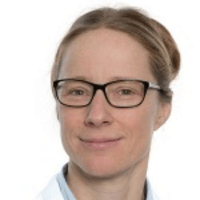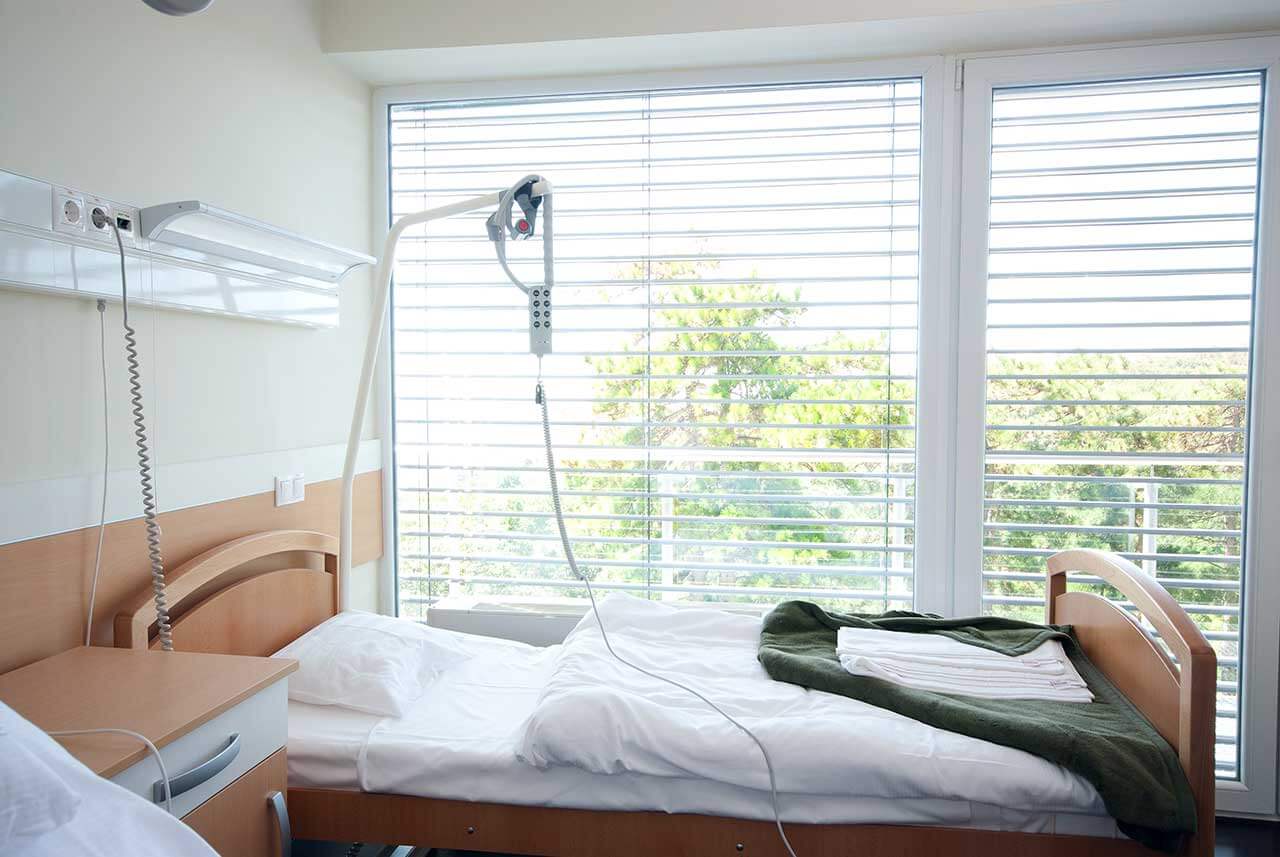
About the Department of Neurological Rehabilitation at Neurological Rehabilitation Clinic RehaNova Cologne
According to the prestigious Focus magazine, the Department of Neurological Rehabilitation at the Neurological Rehabilitation Clinic RehaNova Cologne ranks among the best German medical facilities in the field of its competence!
The department carries out high-quality rehabilitation of patients with neurological diseases of any severity, complications of neurological diseases and associated pathologies. The department's specialists have excellent qualifications in the field of all phases of rehabilitation – phases B, C, D. The rehabilitation programs are individually adapted for each patient depending on the clinical indications and purposes of rehabilitation. The treatment is based on an interdisciplinary approach, which helps to achieve optimal results. The department is headed by PD Dr. med. Kathrin Gerbershagen.
The department has all modern rehabilitation methods, which allow partial or full reintegration of the patient into everyday life – restoration of mobility, speech, swallowing, cognitive functions, self-care skills (personal hygiene, eating, etc.). A crucial role in achieving the rehabilitation goals is played by the close cooperation of a specialized medical team, which includes physiotherapists, occupational therapists, speech therapists, psychologists, neuropsychologists, art therapists, music therapists and other specialists.
The rehabilitation measures are carried out in specially equipped treatment rooms, including a special kitchen where patients can restore eating habits, a room for restoration of lost cognitive functions with 8 places with computer equipment for training and testing, rooms with specially equipped workplaces for occupational therapy, as well as rooms for art therapy and music therapy, a hall with a therapeutic pool.
The department specializes in neurological rehabilitation in patients after the following diseases:
- Stroke
- Subarachnoid hemorrhage
- Traumatic brain injuries, including polytrauma
- Anoxic brain injury
- Circulatory disorders of the brain
- Malignant and benign brain tumors
- Infectious and parasitic diseases of the nervous system (for example, meningitis, spinal abscesses)
- Polyneuropathies
- Spinal injuries and diseases
- Guillain–Barré syndrome
- Multiple sclerosis
- Parkinson's disease
- Organic personality disorders
- Other neuropathologies
The therapeutic service range of the department includes:
- Physiotherapy (this type of therapy is aimed at the restoration of movement functions with the help of physical impacts on the human body)
- Functional motor therapy based on the Bobath concept
- PNF technique (proprioceptive neuromuscular facilitation)
- Kinesiology taping
- Treadmill workout
- Electrotherapy
- Ergotherapy (the technique is aimed at the restoration of personal hygiene skills, dressing and undressing skills, household tasks, professional skills, etc.)
- Functional motor therapy based on the Bobath concept
- ADL training for the restoration of self-care skills
- Training for restoration of eating and cooking skills
- Dysphagia therapy (F.O.T.T. technique)
- Training for the restoration of memory and attention
- Treatment of neglect syndrome
- Speech therapy (the technique is aimed at the elimination or alleviation of speech and swallowing disorders)
- Treatment of dysphagia (swallowing disorder) with or without tracheal cannula
- Treatment of functional dysphagia according to the Bartolome method
- F.O.T.T. therapy according to Kay Coombes method
- Tracheostomy weaning
- Weaning from artificial lung ventilation
- Treatment of facial paresis using F.O.T.T. and proprioceptive neuromuscular facilitation
- Fiberoptic endoscopic evaluation of swallowing (FEES)
- Fluoroscopic swallowing examination
- Aphasia treatment (acquired speech disorders)
- Individually adapted classes for training speech, perception, reading, writing (for example, using MODAK technique)
- Training for the restoration of speech in everyday life
- Treatment of cognitive dysphasia
- Treatment of dysarthrophonic symptoms (acquired speech and voice disorders)
- Treatment of breathing, voice and articulation disorders caused by lesions of the muscles that are used for speech
- Treatment of paralysis of the muscles that are used for speech
- Trainings for speech restoration using pictograms
- Selection of electronic means of communication
- Clinical neuropsychology (one of the types of psychotherapy, which task is the treatment of consequences of neurological disorders – behavioral disorders, psycho-emotional disorders (depressions, fears), cognitive impairments (impaired memory, attention, thinking, visual perception, etc.))
- Treatment using special computer programs (for example, in the case of attention disorders)
- Training for the elimination of problems with memory and thinking
- Behavioral therapy, systemic psychotherapy methods
- Relaxation procedures
- Bobath therapy (the basis of this method is the interaction between the psyche and the body, as a result of which not a single organ, but for whole body was treated; the aim is the development of controlled and conscious movements with a simultaneous decrease in muscle hypertonicity)
- Other methods of rehabilitation medicine
Curriculum vitae
- 1999 Completion of Professional Training in Medicine, University Hospital Hamburg-Eppendorf.
- 2000 Doctoral Degree in Medicine.
- 2000 - 2004 Assistant Physician, Department of Neurology at the Barmbek Hospital (Hamburg) and the Department of Psychiatry at the Itzehoe Hospital.
- Since November 2004 Assistant Physician, Department of Neurology and Palliative Medicine at the Academic Hospital Cologne-Merheim.
- 2005 - 2007 Medical Specialist, Department of Neurology at the Academic Hospital Cologne-Merheim (last position – Leading Senior Physician).
- Since January 2018 Chief Physician in the Department of Neurological Rehabilitation at the Neurological Rehabilitation Clinic RehaNova Cologne.
Photo of the doctor: (c) RehaNova Neurologische Rehabilitationsklinik Köln gGmbH




